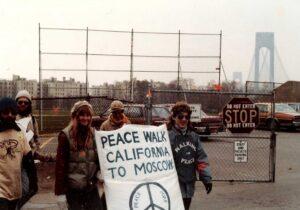Read more
In Focus
GGP Newsletter July - December 2022
"Among the many lessons of the past year is that global governance does not always – or even often – take place at the global level. Instead, what we see as ‘world order’ is...
A joint CIVICA research project by The London School of Economics and Political Science (LSE) and the European University Institute
 What lessons do citizens draw from experiencing major armed conflicts, and how do they think about international politics in their immediate aftermath? When war is a recent rather than a distant memory, do people have coherent ideas about newly emerging tensions and the best ways to ensure peace, security, and stability going forward? These important questions have gained new relevance in light of Russia’s invasion of Ukraine. While many politicians, pundits and observers point to lessons from World War 2 to illustrate the necessity of stopping aggressors decisively in their tracks, others maintain that the same event instead has shown that neutrality is the preferred way to prevent an escalation of armed conflict. How people arrive at vastly different assessments of events of regional and global significance is as notable as it is puzzling.
What lessons do citizens draw from experiencing major armed conflicts, and how do they think about international politics in their immediate aftermath? When war is a recent rather than a distant memory, do people have coherent ideas about newly emerging tensions and the best ways to ensure peace, security, and stability going forward? These important questions have gained new relevance in light of Russia’s invasion of Ukraine. While many politicians, pundits and observers point to lessons from World War 2 to illustrate the necessity of stopping aggressors decisively in their tracks, others maintain that the same event instead has shown that neutrality is the preferred way to prevent an escalation of armed conflict. How people arrive at vastly different assessments of events of regional and global significance is as notable as it is puzzling.
In this project, Mareike Kleine (LSE), Chris Anderson (LSE) and Stephanie Hofmann (EUI) will start examining a treasure trove of previously unused public surveys conducted during the Cold War. They promise to offer rare glimpses into (changing) attitudes toward European and international politics in the years following World War 2.



